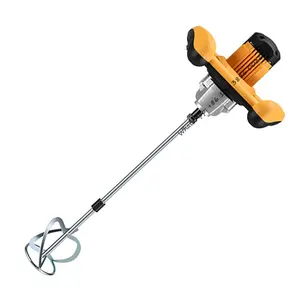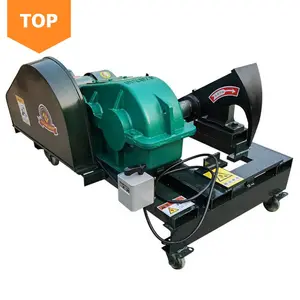Popular in your industry












































































Top categories
About commercial nut chopper
Navigating the market for the perfect commercial nut chopper can be as intricate as the nuts themselves. These essential kitchen companions, designed for efficiency and precision, are the unsung heroes in the transformation of raw nuts into culinary delights. Whether you're a professional chef in a bustling restaurant or a manufacturer in the food industry, understanding the mechanics, types, and features of these machines is crucial for selecting the right one. This article will guide you through the various aspects of commercial nut choppers, from the innovative technologies that enhance their performance to the key considerations that should influence your purchasing decision.
Understanding Commercial Nut Choppers

Commercial nut choppers, often referred to as nut grinding machines, are designed to process a variety of nuts into a homogenized, emulsified, or finely ground state. These machines operate on the principle of shearing and grinding, utilizing high-speed stirring forces. The materials are subjected to shear force and friction between tooth-form slopes, one of which rotates rapidly while the other remains stationary. This action allows for the efficient grinding and mixing of the nuts, resulting in a fine and super micro end product.
These industrial-grade machines are versatile and can handle wet type super micro grain processing, making them suitable for a wide range of applications. They are commonly used in the food industry for products like fruit jams, juices, and dairy beverages, as well as in pharmaceuticals, chemical industries, and even in the production of nanomaterials. The ability to homogenize, emulsify, and separate products makes them an essential tool in various production lines.
The colloid mills, a type of nut chopper, have been innovated with new technologies that have earned national and international patents, signifying improvements in longevity and product quality. These advancements contribute to the machines' capabilities and reliability, ensuring they meet the processing needs of businesses in different sectors.
Types of Nut Choppers Available on Alibaba.com
Alibaba.com showcases a diverse range of commercial nut choppers designed to meet various processing needs. Among the types available, there are multi-function machines capable of handling dry fruits, sunflower seeds, almonds, peanuts, and cashews, which are suitable for food packaging purposes. These machines are engineered to perform tasks such as dicing, crushing, cutting, and chopping, making them versatile for handling different kinds of nuts.
Specific models include machines adept at roasting groundnuts and coffee beans. Another notable type is the automatic dry fruit and nut packaging machine, streamlining the packaging process for a variety of nuts. For more specialized applications, there are machines tailored for precise cutting and chopping actions.
The selection also extends to smaller electric drum roasters and granulator machines, which are ideal for businesses with limited space but requiring efficient nut processing capabilities. For industrial-scale operations, there are heavy-duty chopping machines that can handle large volumes of peanuts, almonds, and other nuts with ease. These commercial choppers are not only efficient but also built with durability in mind, ensuring they can withstand the rigors of a commercial kitchen or production facility.
Key Features to Consider When Selecting a Nut Chopper
When selecting a nut chopper, consider factors such as size and capacity, which dictate the volume of nuts you can process at once. The appliance's size impacts both usage and storage, while the bowl's capacity is crucial for determining the quantity of food you can chop simultaneously.
The choice between manual and electric nut choppers hinges on personal preference and intended use. Manual choppers offer portability and simplicity, while electric models provide speed and convenience.
The type of nuts you plan to chop is also important as choppers vary in their ability to handle different shelled nuts and legumes.
Blade material is critical for durability and effectiveness. Stainless steel blades are preferred for their longevity and resistance to rust and corrosion, essential for frequent use and cleaning.
Ergonomics play a role in comfort, especially for manual choppers. Features like a good grip and an easy-to-operate crank can make a significant difference in user experience.
Additional features may include nonslip bases, measurement markings, or storage components, which can enhance safety, ease of use, and versatility. Opt for choppers that offer these benefits without compromising on the essential features.
Performance Insights: Efficiency and Durability
The nut chopper exemplifies efficiency in the kitchen, with a design that prioritizes neat and efficient meal preparation. Its 1.25 cup capacity is complemented by ease of use, making it accessible for users of all ages. The device's effectiveness is highlighted by its ability to transform a variety of nuts into finely chopped ingredients, suitable for numerous culinary applications. The inclusion of an 18/8 stainless steel blade is a testament to the chopper's durability, ensuring that it can handle the repetitive task of chopping without succumbing to wear and tear. The practical design also addresses the common issue of nuts scattering during chopping, as the nuts are contained within the hopper and directed into a glass base after being processed. This feature not only enhances the chopper's efficiency but also contributes to a tidier preparation area.
Material and Build Quality in Nut Choppers

Commercial nut choppers are designed with durability and efficiency in mind, often featuring robust stainless steel construction. This material is not only resistant to corrosion but also ensures a long-lasting performance, which is essential in high-volume food processing environments. Stainless steel is a common choice for these machines due to its ease of cleaning and its ability to maintain hygiene standards, which is crucial in any food-related application. The build quality of these choppers is focused on withstanding the rigors of commercial use, where they are expected to handle a variety of nuts, from almonds to pistachios, without compromising on the integrity of the cut.
The construction of these nut choppers often includes hardened blades that are designed to offer precision cutting, dicing, and chopping. This is particularly important when consistency in size and shape of the chopped nuts is required, as it is in many commercial baking and confectionery settings. The machines are engineered to minimize waste and maximize output, which is a key consideration for businesses looking to optimize their operations. Additionally, the safety features integrated into the design, such as protective guards and emergency stop functions, reflect the manufacturers' commitment to user safety, alongside performance and durability.
Advantages of Using a Commercial Nut Chopper
Utilizing a commercial nut chopper can significantly enhance the efficiency of food preparation. These devices are designed to operate easily, allowing for quick and uniform chopping or mincing of ingredients. This ease of use can contribute to a safer kitchen environment by reducing the risk of accidents commonly associated with manual chopping.
The construction of a commercial nut chopper often involves stainless steel blades, which offer a hygienic advantage as they are less likely to harbor germs. This contributes to a cleaner cooking space and can help in reducing the risk of contamination.
Time-saving is another key benefit, as commercial nut choppers can handle large quantities of nuts swiftly, eliminating the need for prolonged manual labor at the kitchen counter. This can make the cooking experience more enjoyable and less strenuous.
Moreover, many choppers are built with transparent materials, allowing for easy monitoring of the chopping process and ensuring that the usage is hassle-free. A good locking system is also a common feature, securing the blades and ensuring safety during operation.
Application Areas: From Bakeries to Home Kitchens
A classic kitchen gadget, the nut chopper is a staple for both the casual and serious cook. Its practical design is aimed at simplifying the process of preparing meals. With a focus on functionality, this tool is a common sight on kitchen shelves, ready to assist in meal preparation tasks. The nut chopper is not just limited to professional settings but is also a valuable addition to home kitchens. Its ease of use extends to users of all ages, making it a helpful device for family cooking activities, especially during festive seasons when recipes like Pecan Crescents become a family tradition. The chopper's efficient blade system is designed to handle a variety of nuts, including pecans, walnuts, almonds, and filberts, ensuring that they are chopped neatly and quickly without the hassle of manual chopping with a chef's knife. This efficiency makes it an ideal tool for use in environments where time and neatness are of the essence, such as bakeries, restaurants, and home kitchens where baking and cooking are undertaken with a passion for perfection.
Maintenance and Safety Tips

Maintaining your nut chopper ensures its longevity and safe operation. Regular cleaning is essential; after each use, disassemble the chopper as per the manufacturer's instructions and wash the parts with warm, soapy water. Ensure the blades are handled carefully to avoid injury and are thoroughly dried to prevent rust. For electric models, wipe the base with a damp cloth, taking care not to immerse it in water. Storing the chopper in a dry place will also help maintain its condition. Regular checks for any wear or damage, particularly to the blades and safety mechanisms, are crucial. If any parts are worn out or damaged, replace them immediately to maintain the chopper's performance and safety. By following these maintenance and safety tips, you can help prolong the life of your nut chopper and ensure it remains a reliable tool in your kitchen.
Conclusion
In conclusion, the right commercial nut chopper is a game-changer in the food preparation process, offering a blend of efficiency, durability, and precision. From the robust stainless steel construction to the ergonomic design of manual models, these machines are tailored to meet the demands of high-volume food processing environments. The insights provided on types available, key features for selection, and performance, alongside practical maintenance and safety tips, equip you with the knowledge to make an informed decision. Whether for a bakery, a home kitchen, or an industrial setting, a commercial nut chopper is an investment that can enhance the quality of your products and streamline your operations. Remember to weigh the factors of capacity, blade material, and additional features against your specific needs to find the perfect fit for your culinary endeavors.






















